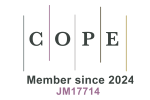Webinar series ‘How to conduct and publish excellent research on traffic safety’—part 5
The upcoming speaker is Lars Ekman, traffic safety expert at Swedish Transport Administration (recently retired).
.
Traffic Safety Research is a Fair Open Access journal, meaning that all incomes are used exclusively to sustain its daily operation and strategic development (no profit intended).
The TSR journal receives some crucial services, such as web-hosting, DOI registration, and plagiarism control through support from the libraries of the Lund University, the Delft University of Technology, and the Swedish National Road and Transport Research Institute.
However, our ambition to keep the highest standards in academic publishing implies additional costs. These cover:
The TSR's long-term vision is to become a truly fair publisher by making the journal free at any point of use for authors and readers, while the costs being covered through general long-term sponsorship agreements (see p. 4 in the Fair Open Access principles). While some progress in this direction has been made, we are not fully there yet.
Currently, there are two main sources to financially sustain the TSR journal:
The authors of accepted manuscripts are asked to pay a production fee. The fee is kept intentionally low and is directly based on the upfront cost to prepare an ‘average’ TSR article for publication. Currently, the production fee is:
* Check the current exchange rates here.
Authors from the following countries are eligible for a 50% discount (eligibility is based on the country of the first author's primary affiliation):
Albania, Algeria, Argentina, Armenia, Azerbaijan, Belarus, Belize, Bosnia and Herzegovina, Botswana, Brazil, Cabo Verde, China, Colombia, Cuba, Dominica, Dominican Republic, Ecuador, El Salvador, Equatorial Guinea, Fiji, Gabon, Georgia, Grenada, Guatemala, Indonesia, Iraq, Jamaica, Kazakhstan, Kosovo, Libya, Malaysia, Maldives, Marshall Islands, Mauritius, Mexico, Moldova, Mongolia, Montenegro, North Macedonia, Paraguay, Peru, Samoa, Serbia, South Africa, St. Lucia, St. Vincent and the Grenadines, Suriname, Thailand, Tonga, Türkiye, Turkmenistan, Tuvalu, Ukraine†.
Authors from the following countries are eligible for a full fee waiver (eligibility is based on the country of the first author's primary affiliation):
Afghanistan, Angola, Bangladesh, Benin, Bhutan, Bolivia, Burkina Faso, Burundi, Cabo Verde, Cambodia, Cameroon, Central African Republic, Chad, Comoros, Congo, Congo, Côte d'Ivoire, Democratic People’s Republic of Korea, Djibouti, Egypt, Eritrea, Eswatini, Ethiopia, Gambia, Ghana, Guinea, Guinea-Bissau, Haiti, Honduras, India, Iran, Jordan, Kenya, Kiribati, Kyrgyz Republic, Lao PDR, Lebanon, Lesotho, Liberia, Madagascar, Malawi, Mali, Mauritania, Micronesia, Morocco, Mozambique, Myanmar, Nepal, Nicaragua, Niger, Nigeria, Pakistan, Papua New Guinea, Philippines, Rwanda, Samoa, São Tomé and Principe, Senegal, Sierra Leone, Solomon Islands, Somalia, South Sudan, Sri Lanka, Sudan, Syrian Arab Republic, Tajikistan, Tanzania, Timor-Leste, Togo, Tunisia, Uganda, Uzbekistan, Vanuatu, Vietnam, West Bank and Gaza, Yemen, Zambia, Zimbabwe†.
† The lists are based on the World Bank's country classification by income, with the discount offered to the upper-middle-income countries and a full weaver to the lower-middle-income and low-income countries. Since the list is not static, it is recommended to always check the current country's status at the World Bank web page.
Authors affiliated with a TSR sponsor organisation are normally covered by a special agreement that exempts them from paying the production fee. The eligibility is based on the country of the first author's primary affiliation.
An organization may become a TSR sponsor by subscribing to cover publication costs for a certain number of articles per year. Sponsorship is normally associated with a special agreement exempting the individual authors affiliated with the sponsoring organization from paying the production fee.
The following sponsorship levels are available:
‡ Check the current exchange rates here.
Special agreements deal with the article production costs only. During the review stage, the editors are explicitly instructed to disregard in their decision making the fact of the author(s) being affiliated with the sponsor organization. The same quality criteria apply to all submissions.
The current list of the TSR sponsors can be found here. In case you are interested to become a sponsor, please get in contact with the journal editorial team.
The upcoming speaker is Lars Ekman, traffic safety expert at Swedish Transport Administration (recently retired).
.
|
ISSN 2004-3082 (online) Editor-in-chief: |
 |
